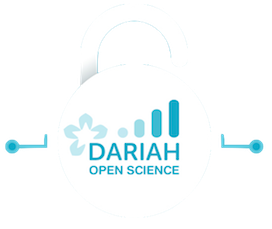|
|
|
Workshops > Open Peer Review hands on: alternative methods of evaluation in scholarly publishingOpen Peer Review hands on: alternative methods of evaluation in scholarly publishingConvenors: Edit Görögh (University of Göttingen) ABSTRACT New tools, platforms and services are constantly emerging to enrich scholarly communication across all phases of the research workflow, and in particular provide occasions to revisit and re-evaluate both the process and the outcomes of scholarly discourse. As dissemination methods diversify within the scholarly communication scene, the related review processes have also been revisited. Emerging alternative peer review methods move away from the traditional closed peer review processes towards a more open and transparent methodology with varying degrees of openness in identity, documentation, participation, and time. New, innovative tools incorporate the basic principles of open science by employing open, collaborative and network-based publishing and review methodologies. The analysis of peer review methods and processes is currently conducted in the framework of the EU-funded OpenUP project (www.openup-h2020.eu) which sets out to further shape the current discourse of scientific dissemination, evaluation and assessment by mapping out the current scholarly environment and clearly specifying the underlying processes. Through an evaluation of alternative peer review methods, the OpenUP project contributes to a more democratic, transparent and community-based knowledge discovery and dissemination of scholarly output. The solutions these tools offer invigorate conversation among researchers about the purpose of peer review, as well as, their role and responsibilities in the process. Such dialogue, which is continuously reshaped by the exchange of ideas, new perspectives (open science approach, crediting review work) and tools (e.g. ORCID review tracking functionality) and emerging frameworks (e.g. Pre-registration of research, uploading preprints for grant application), promises a more scholar-centric approach. This workshop has multiple purposes including (1) assessing existing and evolving methods and functions of alternative peer review mechanisms, (2) breaking down peer review into the basic processes to identify the benefits and challenges, and (3) identifying questions and issues that need further investigation. Group discussions will also touch upon issues such as the sustainability, long-term availability of alternative review tools, and their uptake by researchers, and the incorporation of these methods into institutional, national, funders’ and publishers’ policies. Topics: Discussions will center around the following topics:
Expected results: The workshop discussions, in general, will explore how open peer review is evaluated within the Humanities research communities. They will demonstrate in what ways the aspects of transparency and openness influence publishing, assessing and gaining acknowledgement for scientific results, and what challenges researchers face in these processes. The workshop will also try to collect best practices from researchers and other participating stakeholders. Structure: The workshop will employ various methods to advance a productive dialogue of stakeholders.
|


